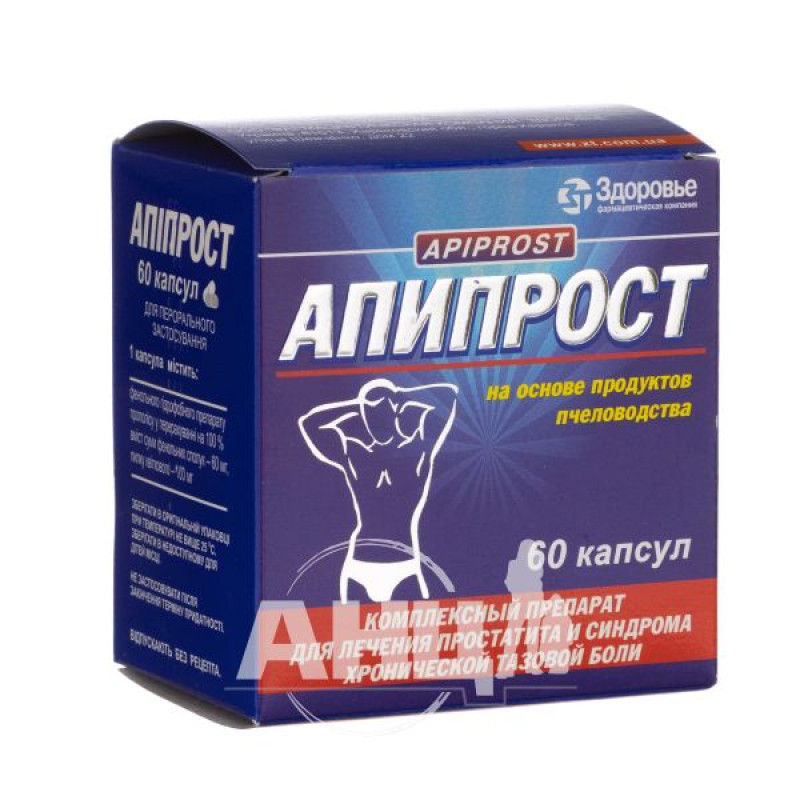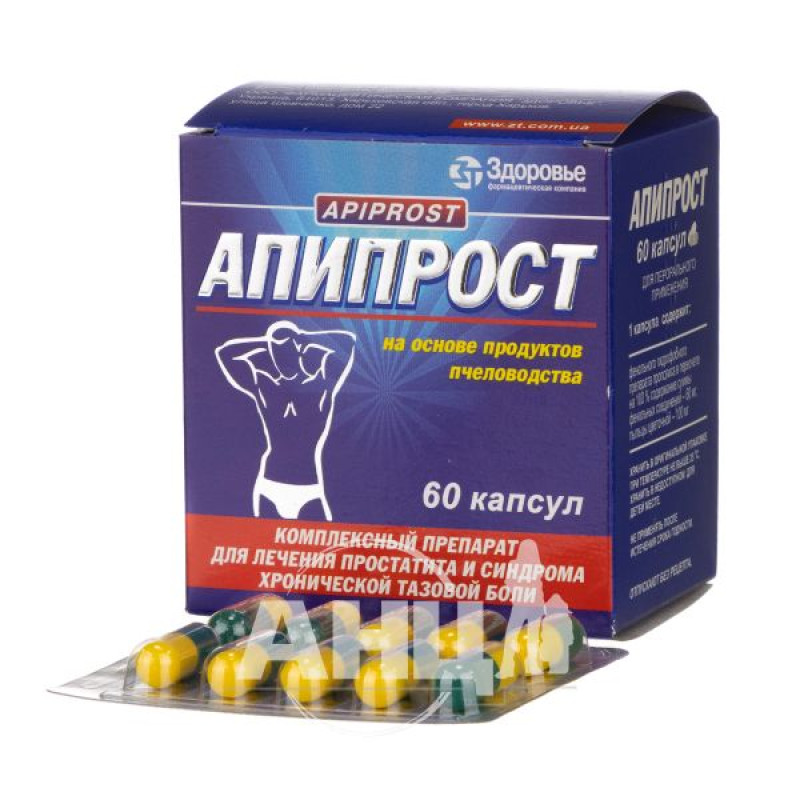Apiprost capsules blister No. 60

Pharmacological properties
A complex preparation based on beekeeping products, containing a phenolic hydrophobic preparation of propolis (FGPP) and flower pollen. The composition of FGPP includes flavonoids (apigenin, luteolin, robidanol), flavonols (quercetin, kaempferol), oxycoumarins, phenolic carboxylic acids. Flower pollen contains proteins and free amino acids, nucleic acids, lipid components (triglycerides, phospholipids, unsaturated fatty acids), phytosterols, vitamins (β-carotene, E, C, B1, B2, PP, etc.), macro- and microelements (potassium, calcium, magnesium, iron, zinc, copper, cobalt, phosphorus, manganese, sulfur, silver, nickel, sodium, chlorine, etc.), phenolic compounds (catechins, flavonoids, anthocyanins, leucoanthocyanins, aurons, chalcones and phenolic acids), phytohormones (brasins), carbohydrates (mainly fructose and glucose), enzymes. The composition of the drug determines a wide range of its pharmacological properties - anti-inflammatory, antioxidant, membrane-protective, analgesic, reparative activity and corrective effect on the level of androgens. The pharmacological effects of FGPP and flower pollen provide an impact on the main links in the pathogenesis of prostatitis: they promote the regeneration of prostate cells, reduce the severity of pain, and eliminate the inflammatory reaction.
The drug has no toxic effect on spermatogenesis. Does not affect the cellular and humoral immunity, does not exhibit local irritant, mutagenic, cumulative, ulcerogenic effects. The drug does not affect the secretory activity of the gastric glands and does not have a toxic effect on the functions of vital organs and body systems with prolonged use.
Indication
As part of the complex therapy of acute and chronic bacterial prostatitis; chronic abacterial prostatitis; inflammatory chronic pelvic pain syndrome, non-inflammatory chronic pelvic pain syndrome (prostatodynia); asymptomatic inflammatory prostatitis.
Prevention of recurrence of acute and chronic prostatitis.
Application
Adults 30 minutes before meals, as the drug may bind to food proteins and organic acids.
In acute bacterial prostatitis, take 2 capsules 3 times a day for 1 month. If necessary, the course of treatment can be extended.
In chronic bacterial prostatitis, chronic abacterial prostatitis: inflammatory chronic pelvic pain syndrome, non-inflammatory chronic pelvic pain syndrome (prostatodynia), asymptomatic inflammatory prostatitis - 2 capsules 3 times a day for 2 months. If necessary, after a 2-week break, the course of treatment can be repeated.
To prevent recurrence of acute and chronic prostatitis, take 1 capsule 3 times a day for 3-4 weeks 3-4 times a year.
Contraindication
Hypersensitivity (allergy) to any component of the drug. Children's age.
Side effects
Nausea is possible.
Special instructions
Before starting treatment with the drug, it is necessary to exclude the presence of a malignant neoplasm of the prostate gland.
Interactions
If it is necessary to use Apiprost simultaneously with other medicinal products (containing heavy metals, such as antacids) that can form complexes with it, the drugs must be taken at least 30 minutes apart to prevent interaction.
Overdose
A significant increase in the dose with prolonged use may cause an allergic reaction and nausea. Treatment is symptomatic.
Storage conditions
At a temperature of 8-25 °C.
There are no reviews for this product.
There are no reviews for this product, be the first to leave your review.
No questions about this product, be the first and ask your question.







